#hermione granger books vs films
Text
I wouldn’t mind film!Hermione quite so much if she just wasn’t so... smug about everything.
Like, in the books (aside from a few occasional moments) Hermione loses most of her smugness during her first three years at Hogwarts, especially when it comes to the people she’s close to.
But in the films? She never lets up with it. She thinks she knows it all, and wants you to know that she knows it all.
Hence the ‘I’m highly logical line’ which (if it was any other series) would be used to make a character seem prideful before they get taken down a peg.
To a Hufflepuff like myself who finds smugness to be an... unpleasant trait, this makes it very difficult to actually root for the character in the films. Sometimes, I just wish she’d had her ego deflated a bit.
#movie!hermione was a bit...odd compared to her book counterpart#anti-steve kloves#hermione wasn't perfect and that's fine#stop putting hermione on a pedestal#hermione granger books vs films#hermione granger books vs movies#sorry emma
28 notes
·
View notes
Text
obviously I could blather on for ages about all the things the Harry Potter movies got wrong, but I think there’s one particular scene in Order of the Phoenix that sums up the problem very well. the thing is, though, it’s a good scene. Harry’s finally voicing his anxiety about both his confusing emotions and his possible connection with Voldemort to someone he really looks up to and trusts. and Sirius does everything right: he affirms Harry’s feelings while still reassuring him that no, he’s not a bad person, and drops a very memorable quote for good measure. “what matters is the part we choose to act on.”
in the book, like in the movie, the very first person Harry chooses to confide his fears in is Sirius. unlike in the movie, Sirius’s response is pretty similar to what every other adult has been telling Harry throughout the book about, well, everything: you’ve had a shock, you’re worrying too much, let the adults handle this. small wonder, then, that when Harry overhears more adults that he trusts discussing the possibility that Voldemort is actually possessing him, his immediate reaction is to retreat and shut down. he’s the weapon.
here is where the difference between the books and the films becomes painfully clear. it’s not an adult who sheds light on Harry’s situation and calms his fears, because how could it be? this is all theoretical for them: inexplicable mental connections to dark wizards, the emotional minefields of fifteen year old boys. while the adults hypothesize and plan and do all they can to “protect” the children, the children are already living this war just the same. and so instead of wise reassurances about light and dark, we have this:
“I didn’t want anyone to talk to me,” said Harry, who was feeling more and more nettled. “Well, that was a bit stupid of you,” said Ginny angrily, “seeing as you don’t know anyone but me who’s been possessed by You-Know-Who, and I can tell you how it feels.”
Ginny’s not only providing the slap in the face Harry needs - her response to his fears is immediate, tangible, real. he’s not the only one here with a dark connection to Voldemort. he’s not as alone as he always thinks he is. and he has not been possessed: she’s able to prove that almost at once. Hermione and Ron’s responses are equally to the point, equally reassuring, and equally in character: “one day, you’ll read Hogwarts, A History, and perhaps that will remind you that you can’t Apparate or Disapparate inside Hogwarts.” “you didn’t leave your bed, mate. I saw you thrashing around in your sleep about a minute before we could wake you up.”
taking this scene out of the film removes a crucial development in Ginny and Harry’s relationship - it’s the first time Harry sees her as someone unafraid to confront him at his darkest, and more than that, as the only person who has known that darkness in the way that he does. replacing this scene with a conversation with an adult, though, completely misses the point of the story. Order of the Phoenix, more so than any of the preceding books, is a story where the adults fail the children, over and over again. no matter how wise they are, no matter how much they care, they fail, and that’s important. it’s the children who are living this war, and who will end up fighting some of its most crucial battles. try as they might, the adults simply can’t understand the war from their perspective. the best will support, protect, and guide however they can, and the worst will actively fight against them, but none will fully understand what it’s like to be fifteen years old and confused and angry and all the time facing this terrifying, powerful darkness. that understanding and support can only come from their peers. and it can only be gained, as Harry learns, when they communicate with each other and face the darkness together. the clouds part a bit then, the burden eases somewhat. “you don’t have to do this all by yourself.”
#harry potter#order of the phoenix#harry potter films#harry potter books#hp fandom#books vs movies#dumbledores army#hinny#golden trio#hp5#harry potter thoughts#harry potter theory#hp characters#ron weasley#hermione granger#ginny weasley
607 notes
·
View notes
Text
Hermione’s character assassination in the movies
I see a lot of people complaining about Ginny and Ron’s characters in the movies(which I agree with. They deserved better) so i thought I’d make a post about Hermione. I will bring up some of Ron and Harry’s movie inconsistencies in this as they pertain to dynamic of the trio.
I would like to preface this by saying that none of this is Emma Watson’s fault. She is a lovely person and great actress. I am simply commenting on the directors/costume designers choices. This has nothing to do with Emma’s acting. I think she did a lovely job.
The first point and one that will be reoccurring is that Hermione in the movies is too perfect. Her description in the books is that she has brown bushy hair and large front teeth(at least up to GoF). I won’t comment on her character’s race right now although that would be an interesting discussion for another post. Emma Watson has brown hair and is a girl. The first few movies got the hair somewhat right but by Deathly Hallows, her hair was practically straight. I think that a big part of Hermione’s character in the books was that she wasn’t conventionally attractive. The dynamic of the trio relied on the fact that the three of them were outcasts and balanced each other out. I think that was an important factor of Hermione’s character because it added in a factor of relatability. Someone that little girls who maybe don’t feel conventionally attractive or maybe feel down about being outcasts can look up to.
She was not only ‘too perfect’ in appearance but also in comparison with the rest of the trio. The trio in the books was great because there was a balance. They all brought their own strengths to the group and that was why they worked so well. Hermione was the ‘brains’, Ron had common sense and was generally more charismatic than the rest, and Harry brought them all together. In the movies, Hermione takes both the brains and the common sense, leaving Ron as the comic relief and a generally flat character. The movies erased Hermione’s flaws and made her less of an interesting character and more of the only good character. They kind of invalidated Harry and Ron’s friendship by giving Ron’s best moments to Hermione. Ex: having Hermione threaten Sirius in PoA instead of Ron. Another example is during Deathly Hallows after Ron abandoned them. In the books, Hermione and Harry were devastated. They spent most of the time in silence and They were both visibly upset. In the movies, they show Harry and Hermione dancing and having fun and seemingly not even missing Ron. They keep in all of Ron’s flaws and erase all if Hermione’s.
Anyways, that’s all I really had to say. These essay type of posts are pretty fun to make so let me know if there’s anything else you’d like to hear my opinion on.
#harry potter#hermione granger#romione#golden trio era#golden trio#book vs film#harry potter opinions#character analysis
70 notes
·
View notes
Text
book: it was Harry’s idea to jump on the back of the dragon
movie: it was hermione’s idea to jump on the back of the dragon
#harry potter movie marathon#harry potter series#harry potter books#harry potter movies#Harry Potter and the deathly hallows#hp7#hp#harry potter#characters of harry potter#hermione#hermione granger#book vs film
14 notes
·
View notes
Text
Steve Kloves Sucks
youtube
I just found this amazingness and it’s so real and hilarious! I can’t stop laughing. He expressed our anger with ‘The screenwriter that shall not be named’ in a song. My fellow Potterheads, please listen to this!
@headcanonsandmore @knightandbooks @allaboutromione @thehufflepuffpixie @hermiones-amortentia @hillnerd @amysthefardareismai
#steve kloves sucks#he fucked up a lot of shit#uhg#he’s stupid#how’d this dude not get fired?#anti steve kloves#steve kloves#hp films#hp books#book vs film#potterheads#harry potter#ron weasley defence squad#ron weasley defense squad#ron weasley#hermione granger
39 notes
·
View notes
Text
Some HP ramblings.
Recently I’ve been thinking a lot about my feelings concerning Harry Potter universe - namely books, film adaptations and one of the new additions to the franchise, The Cursed Child. All those thoughts has literally created an abysmal whirlpool of very mixed emotions, so I thought it may be helpful to write it all down. Let’s fasten seatbelts, have some nice, warm cocoa and start.
When I was younger I loved the films. I adored them almost as much as I adored the books. When every new adaptation had it’s premiere I was there, in the middle of the night, away from home and surrounded by countless strangers, but I didn’t mind - even when normally that would be a pure nightmare for me - because I was so hyped for the new ride. The possibility of seeing your beloved characters on the screen was pure bliss. But later something changed. The more I re-read the books and more I re-watched the films, the more disillusioned I was. Nowadays I cannot even bring myself to watch the movies again (while I regularly go back to the novels).
The most grievious sin for me was changing the personalities of the large part of the cast. I mean... Really large. I think it would be easier to count those who were left mostly intact: Hagrid, Mrs. Weasley, Draco Malfoy maybe the Twins... And a couple of others. The rest was altered, from little changes here and there, to complete annihilation of the original personalities. My great dislike of Filmatrix (Helena Bonham Carter’s take on Bellatrix) is quite obvious for those who follow my posts, but there are others. Poor Ron - what did happen to him? Castrated and robbed of his great lines, and memorable scenes, all in favour of Hermione, originally wonderfully flawed and realistic character, who in the films has become the Wondergirl of the HP cinematic universe. Seriously, it was so bloody obvious, no subtlety at all. Movie!Ginny suffered from similar treatment as her brother, becoming meek and quiet. I’m not even talking about Dumbledore from the 3rd film onwards... And yes, I think that even fan favourite, Alan Rickman wasn’t the same Snape from the books. I’m sure it is not solely the fault of the actors. In my opinion it was rather a result of several factors: directors’s decisions, Steve Kloves’ writing and actors’s personal interpretations of their characters (*cough*, HBC, *cough*). Of course there were many more problems, like the infamous Burrow fire scene (seriously!?), but I think the characters suffered the most.
Now, where does The Cursed Child fits in? There are several ways it links to the previous topic. Firstly - I think it’s quite curious how plenty of people hate it passionately, while at the same time many, many Potter fans not only are OK with the films, but even view the universe exactly how it was presented on the screen, not how it was described in the books. Potterheads will rant endlessly about CC’s inconsistencies and divergence from canon, but also 80/90% of the fanbase see Bellatrix Lestrange as sexy, corset-clad, childish, rat-nest-haired caricature.
Secondly - I’m quite surprised with myself, that I ended up as a firm spokesman for the CC. Those who follow my blog can confirm that I often defended it against the waves of criticism. Why does it surprise me? Because CC suffers from similar problems as the films do. Ron character seems like a movie-born comic relief, the rumor about Scorpius is simply ridiculous, there is too much messing with the time travel, Cedric is suddenly a Death Eater, Ron and Hermione have seemingly lost Hugo, because he’s nowhere to be seen, there is almost no information about the Big Bad, the Augurey... Yeah, I have some issues with this play. So why do I defend it in the first place? I guess, because it is currently “The Unfavorite” of the HP fandom; I’ve always had a thing for those types. There are also pleasant aspects of this story: Ginny/Harry and Ron/Hermione are as loving and supporting of each other as ever. Scorpius and Albus’ relationship is simply too cute. McGonagall is still badass and I really like the concept of Delphi (yes, I think it IS a nice plot twist). Sure her character was not fleshed enough, and by the end of the play some may view her as a general oh-so-evil villain, but I think there is more to her than that - it can be seen in her scene with “Voldemort”.
Anyway, thank you to all who decided to read this lengthy, badly written rant. I really should start doing something a little more productive.
#Harry Potter#Harry Potter Characters#harry potter books#harry potter films#books vs movies#HP movie problems#Ron Weasley#Hermione Granger#bellatrix lestrange#severus snape#Albus Severus Potter#scorpius malfoy#delphi#delphini#harry potter and the cursed child#cursed child#alan rickman#Helena Bonham Carter#filmatrix#Ginny Weasley#lord voldemort#this is long#spilling my guts#books are always better
66 notes
·
View notes
Text
Feminism vs Female Empowerment vs Feminist Exemplification
In the past years this thread of labeling anything that’s female positive as feminist has really skyrocketed and it bothers me greatly. Great female representation and female empowerment does not make a thing feminist. Something that illustrates, explains or describes a feminist value or point of view does not make that thing feminist.
What defines something as sexist or empowering or feminist is the context and the message or objective that it wants to convey.
There are men in the industry who are progressive and works towards equality by hiring more women, and actively trying to give us better female representation. There are women who direct women in films about women and who try to maintain a crew or team of mostly women. In both cases, none of this makes their project or them feminists.
The majority of the entertainment industry responds and caters to The Male Gaze – it does so even if there are no men operatively involved in the project, because 99.9% of people in the industry do not make art, they are here to make money.

And although it is based on what we commonly call artistic careers, that does not mean that there is a really artistic background or objective in the things being made – it’s purely commercial in a vast majority. The ultimate goal of the entertainment industry is to sell. Therefore, much of this "art" is not progressive, thought-provoking or subversive in any way, specially if the person in charge believes that this could cost them money. The main objective is to market to the consumers and they do so at the expense of everything - this includes quality, values, points of view, consciousness and self-awareness. And this is when two very interesting things happen: Faux Feminism & Female Exploitation.
Female Exploitation is when the person in charge believes that what sells is quiet, beautiful and sensual women – this is the main thing, and the character's story is secondary (so much that most end up being just eye candy or as a manic pixie dream girl). In this case they think of subversive and thought-provoking as something that can harm their income. So the actresses talent and creativity doesn’t really matter, as long as they’re pretty and sell.
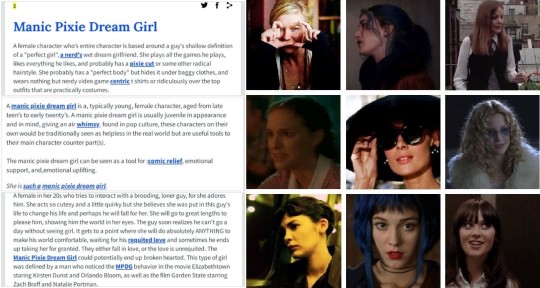
Faux Feminism is when the person in charge believes that the money is in the feminist pov and they make films that could pass as feminist and with strong female characters that follow closely and/or represent the political climate and feminist discourse of today – but that does not make the product feminist, mainly because in most cases they do this in the most superficial way for a monetary gain. Keep in mind, in this cases they don’t explicitally use the word feminism in attachment to whatever their selling, but it’s very obvious.
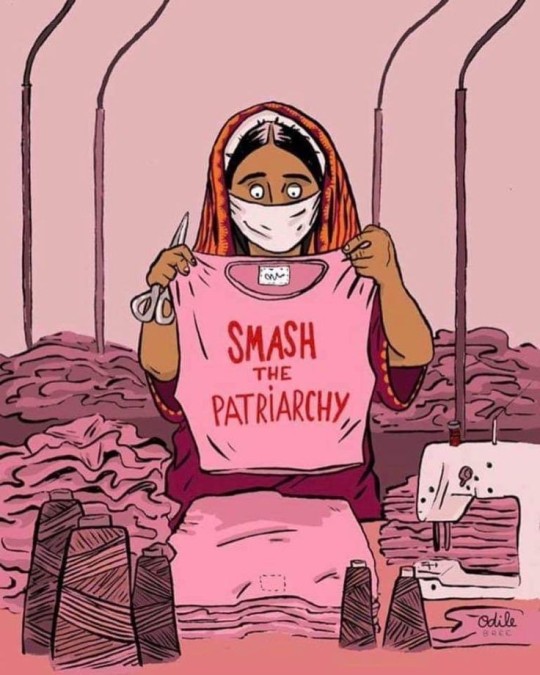
And sometimes is neither of these, but instead Casual Feminism - when something could represent, stand for feminism but that wasn’t the intention at all. Feminists saw it and were like HECK YEAH.
Is feminist a project in which mostly or only women participate? Is feminist a project where the main roles are 99% female? Is feminist a project that addresses sexism? Is feminist a project that’s inclusive? Is feminist a project with independent and empowered women? Is feminist a project that criticizes the way in which society treats women? The answer to all this is NO.
What defines whether something is feminist or not, is first and foremost if whether its exhibitors/creators are feminists or if it was written to represent/stand for feminism explicitly and consciously. If I wear a shirt that says I am feminist, that does not make me feminist. Being a fan of Beyonce, Taylor Swift, Emma Watson or any other feminist does not make me a feminist. Reading one feminist book does not make me feminist (it’s the start, if so I decide). I'm just wearing something, following a person, consuming a product. And many artistic products are attributed the term feminist when they are not in the slightest. If you assume that it is feminist because it exemplifies feminism or is potentially empowering for women, that does not make it feminist. Talking about self-love, girl power, sorority and sexism does not make you a feminist - it makes you self-aware of your rights, strengths and weaknesses and that is excellent and encouraged, but it does not make you feminist.
Why? Because Feminism is a philosophical, social, political, economic and artistic current. What makes a feminist person a feminist, above all, is that they identify themselves as such, with all the awareness of what feminism is because they have studied it or are constantly studying it or have the intention of studying it.
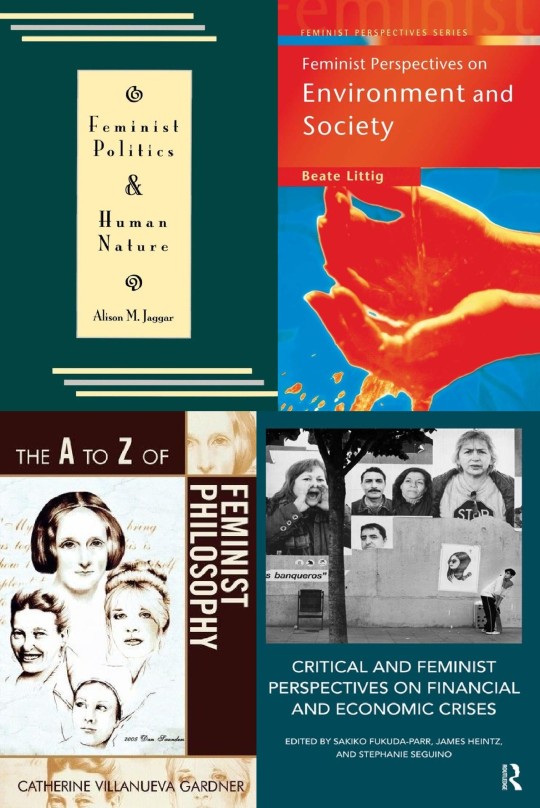
We can long and dream for a feminist awakening in the entertainment industry, but precisely because of that we should not label just anything as sfeminist, because labeling something or someone as feminist when it is not is a disrespect to the person or product and misleading; and it is harmful to the people and products that are feminist and that are mostly ignored, criticized, received in a negative way and usually overshadowed by pseudo-feminist products with better marketing, plus it only helps to preserve the misinformation and misunderstanding of what feminism is and superficializes it. Not to mention it can perpetuate some misconceptions.
Something or someone not being feminist does not mean it is sexist and there IS feminism in the entertainment industry, but very little and it usually suffers from detractors from the industry itself; so what we find mostly is female empowerment, in an initial and often diluted facet.
So no, we can't call it feminist but we can call it empowering since many women feel that spark of strength, they feel identified and reflected accurately, maybe they even feel understood - and that is something very valuable. We can also use them as an exemplification of feminism, there are many artistic projects that are not feminist but serve to explain, illustrate or describe a feminist point of view because they showed it excellently.
Let’s see some examples of what I’m talking about:
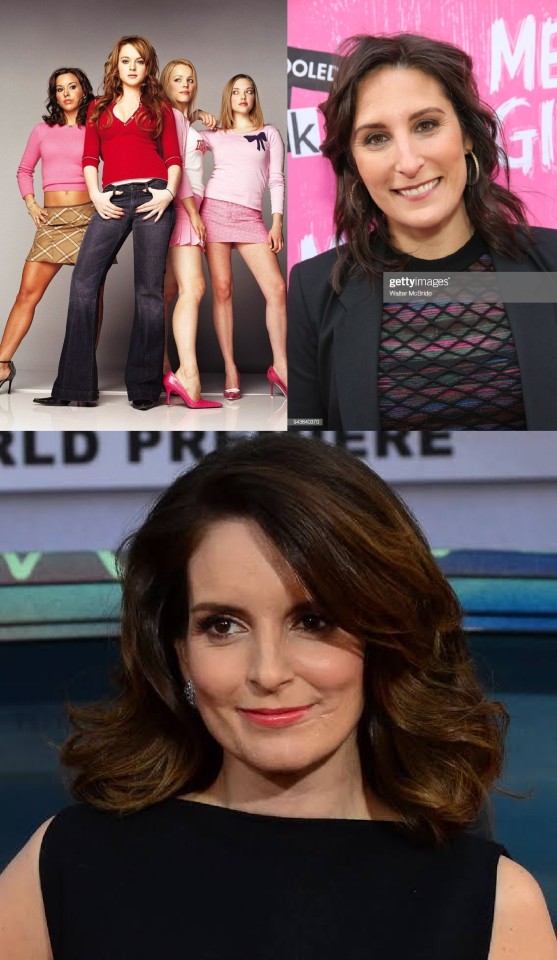
Mean Girls is a great example of a feminist movie. It represents and portrays feminist points of view and feminist values consciously and with the intention and awareness of doing it directly from a feminist stand. It has the feminist label very big and very visibly. It was written by a feminist (Tina Fey), inspired on the novel of another feminist (Rosalind Wiseman). The director is not a feminist, as far as we know, but that doesn’t take away from its value as a feminist piece of work in any manner.
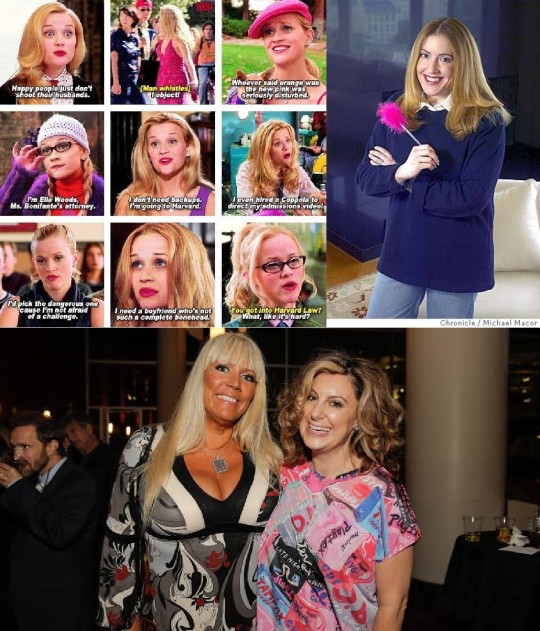
Legally Blonde is another great example of a feminist film. The writers, Karen McCullah and Kirsten Smith are both feminists, Kirsten notably being a Riot Grrrl. It is based on a novel written by a feminist (Amanda Brown). And just as Mean Girls, it represents and portrays feminist points of view and feminist values consciously and with the intention and awareness of doing it directly from a feminist stand. It has the feminist label very big and very visibly. Also, it is very female empowering.
Now let’s talk Harley Quinn, because is a very interesting one.
First, let’s talk about her in the comics. She wasn’t created by feminists. She isn’t coded as feminist. She is not written as a feminist character. She is not female empowering for most of her story. Nor she or her story are an exemplification of feminism. The character is not meant to represent or embody feminism in any way. So is she a feminist character? No.

Now, in the movie Birds of Prey. Again, she wasn’t created by feminists. Was the script written by a woman? Yes, but not a feminist woman. Is the movie directed by a woman? Yes, but again, not a feminist woman – the director even said in an interview that she didn’t want to “sound too much like a diehard bra-burning feminist”. The film had an all women crew. Again, Harley isn’t coded as feminist - she is not written as a feminist. The character is not meant to represent or embody feminism in any way. BUT is it female empowering? HELL YES. And the movie as a whole is a great exemplification of feminism, this is another quote from the director: “a harlequin’s role is to serve, they’re nothing without a master and so the movie is about Harley Quinn becoming her own master. And not just Harley, but the Birds of Prey as well. All these women go through something and they’re all trying to break free from their own chains”. So is the movie feminist? No, and so are not it’s characters. But we can and should embrace and celebrate Harley Quinn from a feminist point of view.
Is Hermione Granger a feminist character? No. But she is female empowering and an exemplification of feminism. The actress who plays her, Emma Watson, is a feminist but that doesn’t magically makes all the characters she portrays feminists or well written female characters.
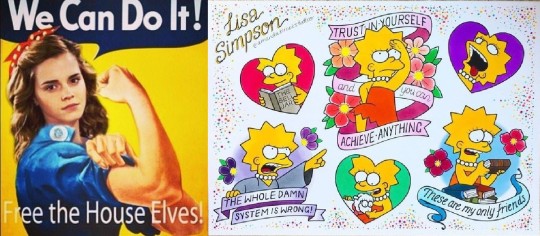
On the other hand, Lisa Simpson IS a feminist. Is the voice-actress a feminist? I don’t know. Are the creators feminists? I dont know either - but it doesn’t matter because Lisa is a feminist and she is explicitly portrayed and written as such, she voices feminism and is meant to embody and represent a feminist (even if it’s an 8 year old one) – and she does so very well if I might add.
So stop calling everything “feminist” and stop telling people that if they believe in equality they are inherently feminists even if they dont want to use that label themselves, stop this specially towards people (I’ve seen this in comment sectons). In my experience, there are three types of women who refuse the feminist label:
1) The Closeted Feminist: a woman that’s not afraid to speak up about their opinions but doesn’t describe themselves or their povs with the word feminism even though their arguments and discourse has a feminist stand that is based on feminist theory to the point where it’s obvious this person has immersed themselves in feminist books, podcasts, films, documentaries, etc – this could be because labeling oneself as a feminist is dangerous. Either in their house, or in the society they’re a part of – and with this I mean that it could actually lead to abuse or active persecution. Not everyone has the same freedom, background and opportunity you do.
2) The Double Agent: they say they don’t need feminism and they don’t believe in it but they still stand for equality and justice. Usually this person doesn’t really understand what feminism is because they have never cared to learn about it and yet they go round commenting on feminist blogs about “how feminists are wrong” – this person believes the patriarchy’s version of what feminism is. This person is aware of the injustice and inbalance but thinks feminism is sexism towards men, hatred of men and that is used for women as a women-victimizing campaign to get pity points and advantages. This are the people that said Taylor Swift played the victim for 13 years.
3) The Free Woman: she doesn’t believe in feminism, she probably voices hate towards feminism and feminists and thinks very low of them because “she doesn’t need feminism” because she loves the men in her life and has “never suffered sexism” first hand so it doesn’t exist. The Free Woman and the Patriarchal Feminist have in common that they feel feminism victimizes women and is sexism towards men. The difference is one thinks inequality is a myth and the other one knows it’s still a thing.
If ya’ll read all of this KUDOS TO YOU and THANK YOU. I’ve been thinking about this for almost a year and it took me a long time and effort to write this and put my thoughts into words cause I’m really bad at expressing myself and lack communication skills. I’d like to write too about the difference between Feminist Icon – Feminist Woman – Iconic Women, just because I’m tired of that mess too.
#feminist#feminism#faux feminism#female empowerment#female representation#long post#very loooooong post#legally blonde#mean girls#harley quinn#birds of prey#hermione granger#harry potter#lisa simpson#the simpsons
1K notes
·
View notes
Note
okay, cam,,,,, here's the abridged version of the thesis paper of hermione granger's yule ball dress conundrum. just remember, you asked for it....
so, why did the movies have to use a Not Blue dress? there's a couple reasons, and they're almost all ~aesthetic~.
firstly, the beauxbaton academy in the movie has a very strong blue motif. by putting hermione in the color blue, we would be betraying her (rather staunch) allegiance to hogwarts, and thematically, it would seem as though hermione (who hated the beauxbaton girls) is somewhat becoming them in this pivotal moment for her character. putting her in blue would make the scene where she gets all dolled up seem like a regression for her character - she is blending in with the other pretty girls to be attractive (something hermione would never do) rather than finding beauty in her own way.
secondly, if you look at the ballroom for that scene, all of the decorations are white and blue. if hermione were to wear a blue dress, she would blend in more with the scenery, and this stand out moment for her character would fade more into the background.
thirdly, emma watson is like,,,,,,, very pretty, and this whole transformation scene was supposed to be a big shock where characters realize "!!!!!!! hermione's actually really good looking!" and because hermione was always pretty, the costuming department had to take a different angle. to still make a splash and do something eye-catching to really sell the moment, they put hermione in a very boisterous color, to garner some of the initial shock.
fourthly, in the prisoner of azkaban movie, hermione wears a pink jacket and a pink belt (?) through the climax of the film, and so it is already established in movie canon that hermione is pink. she is the ~feminine~ side of the trio, as well as the passionate, and so choosing pink, specifically, makes sense in the context of other films. pink is still a staple of hermione's wardrobe in the final movie as well, so it's not like the motif is entirely dropped
and fifthly, as this is hermione's big "i'm a girl, too!" moment, and i think the costume department wanted to go for a traditionally feminine color to highlight that, hence the pink.

now, as to why Blue is the SuPeRiOr cHoIcE....
honestly, this is more opinion than anything, but i chose to die on this hill long ago, and so i have many strong opinions (as many others do).
firstly, periwinkle blue inherently has a certain softness to it that bright pink does not. seeing as this is one of - if not the - first time that hermione is embracing her "girly" side, it would have been nice to hint at that gently - with something that is slightly feminine - to show that hermione is just starting dabbling in this side of herself, rather than going all in.
secondly, and this is building off of the inherent softness of periwinkle blue vs. pink, book!hermione is a very bossy and strong character! she was always more bright and more in-your-face than her movie counterpart, and so by putting her in a blue dress, it was showing how she is also embracing her softer more vulnerable side, which we don't often see. when the night begins, hermione is bubbly and giddy over going to this ball, and she's embraced that soft, unguarded side of herself. the blue represents this!
thirdly, blues and lilacs are more introverted colors. while hermione is not near to being an introvert herself, she is usually more socially awkward and introverted when it comes to big parties and celebrations. she can have fun at big gatherings, certainly, but they're not her comfort zone, and so wearing the standout pink dress makes a bigger statement than hermione would want. a more muted shade blends in better, and keeps eyes off of her.
fourthly, the blue dress is superior, because the dress reveal is hermione's hyper feminine moment, and it's a stronger statement that she's not in a traditionally feminine color, like pink. the blue shows that hermione can still be feminine "and a girl, too!" in her own way - feminine in a way that isn't the same as other girls who dress in pink, but one that is beautiful, the same.
fifthly, (and this reason isn't my own idea, but rather my bffs, circa 2014) blue is an academic color, and hermione is nothing if not academic. hermione is still herself at the yule ball - it's just everyone else who sees her differently - and the more muted shade of blue better fits her usual grey and black academic style.
oooo i love how u addressed it from so many different perspectives -- some i've never even thought about before!!
i definitely agree with the blue being the way hermione sort of embraces her own sense of femininity, rather than blending in with conventional standards. you have worded this all so well!
3 notes
·
View notes
Text
“THE EMMA WATSON EFFECT”
Because I like giving unwanted opinions that might or might not be unpopular.
So this is my take on her (two) most popular characters.
Why do writers think we want to see Emma Watson play a strong, flawless, almost perfect woman?
I just want a good character, so what’s up with this shit?
I have nothing against Watson, but her performances of Hermione and Belle were just not for me. I don’t want a perfect human being THE role model for little girls. I think presenting a character without weaknesses is a BIG mistake, because it takes away the humanity of the character.
It all started with Hermione Granger and Steve Kloves glorification of her. In the books, Hermione used to be a significantly different character. She was the wallflower, she was a girl who had a hard time making friends because of her “strong” or better said difficult personality. A flawed and yet relatable character for many young girls.
The first movie did pretty ok, I guess. But then all the other movies came along. And suddenly, Hermione was this smart, strong, independent pretty girl that saved Harry and Ron from multiple situation with her LOGIC.
“Actually I'm highly logical which allows me to look past extraneous detail and perceive clearly that which others overlook” (fucking hate this quote) making them look inferior and stupid on comparison. It’s also very important to remark that in order to make her smarter and wiser than her book counterpart, some of Ron’s greatest moments were taken away.
“If you want to kill Harry you’ll have to kill us too!” Is such a good example of this. But then again, the whole POA movie could be used as an example.
There are a lot of essays and videos explaining the whole Book vs. Movie Issue and while Ron’s character is the one that suffered the most because of this, Hermione, at least for me became way less likeable and way less relatable.
But it wasn’t just Ron’s lines that were taken away! Even a Dumbledore quote was given to Hermione in the movies! “Fear of a name only increases fear of the thing itself.” -Albus Dumbledore.
So as a result, Hermione became everyones favorite character. And the world started to see her as the TRUE HERO of Harry Potter (an opinion I strongly disagree with) and Harry was just reduced as Hermione’s bestie (even tho his BFF was Ron) who needed her help for every single thing he ever did and Ron just became this laughable sidekick whose only purpose was being a comic relief.
After the HP saga ended, Emma Watson continued working on different projects.
And don’t hate me for saying this but I find super unfair that among the whole cast she had the biggest career opportunities because of the way her character was changed in the movies (I’m happy for her, don’t get me wrong.) I just think that’s what differentiates her from the rest of the cast: Steve Kloves favoritism.
She did an OK bunch of movies (The Perks of Being a Wallflower is actually one of my all time favorite movies) where I don’t think she’d been as outstanding as she was in Harry Potter.
But then Beauty and the Beast came out. And it was honestly one of the worst performances I’ve seen from her (but this is just my personal opinion) this was straight up the same character as Movie Hermione.
They changed Belle character because of Emma, and just like they did with Hermione: they made her the perfect woman.
Once again, Emma Watson played a smart, strong yet beautiful woman who had almost zero flaws.
And I was BORED. I’ve seen this character before and I did not enjoy it.
I don’t know if people see it this way or if it’s just me, but Belle was just ruined. And it was because (for what I heard) Emma Watson wanted to make some changes to the character. And to me it just seemed like Hermione all over again.
I mean, I guess I get it. She knew that’s what audiences loved her for. THAT CHARACTER. So she replicated her. Ok.
But i don’t know, didn’t like her version of Belle, didn’t like Kloves’ version of Hermione. Because, even if I sound way too repetitive. I think a character without flaws is boring, unrealistic and annoying.
I like the intention though.
Being a role model for little girls is a fine idea. But I was a little girl watching the HP films and I was frustrated at how perfect Hermione was (I didn’t read the books until I was 12-13)
I was so stressed out about it. How can anybody be that pretty, that smart, that strong, that powerful? And then I read the books and realized that Movie Hermione was bullshit.
We’re humans after all, Who can live up to that?
I like Emma as an individual, I love her activism and all that. But I don’t like the way the characters versions she’s played (Belle and Hermione) are written. This is not about her as a person, this is just about her characters.
I wrote this after watching this videothat made me realize how much they changed Belle too!
In conclusion: I think showing this portrayal of a character just puts pressure on little girls and creates a desire of being perfect instead of representing REAL women.
But, this is just my opinion.
#emma watson#unpopular opinion#this probably has a lot of grammatical errors#and isn’t it funny how she doesn’t stand out (as an actor) unless she is portraying this character?#harry potter#hermione granger#beauty and the best#belle#anti steve kloves#ron weasley was robbed#live action beauty and the beast#disney#harry potter movies#ron weasley deserved better
55 notes
·
View notes
Text
Re:Last ask about Fe vs Fi
What’s your reasoning for having typed Dolores Umbridge, Hermione Granger and Elinor from Brave as ESTJ, when they are prime examples of “external agreement and consensus matters to you and how hard you would fight to put everyone “on the same page.” ? Specially Elinor, since the whole plot of the film is about Merida rejecting her destined role and obligations (I’ve seen her typed as ESTP which makes no sense, she’s Fi incarnate) while her mom insists she has a duty to fulfill. Shouldn’t Elinor understand Merida’s plight then just like the TJ father in The Fiddler on the Roof?
It’s been ages since I saw Brave, but Elinor could be ESFJ, yes. It would make sense given the conflict she has with her daughter’s independence. As could Umbridge -- rereading the book, there were things about her that seemed Fe-ish but there were also Te-ish things in there and I just never got around to retyping her afterward. She was not trying to bring people into agreement; she was trying to militantly control and police them and ignore something she didn’t want to believe, so ... yeah, probably 1w2 inferior Ti. The fact that she decided to use an Unforgivable Curse on the children and her only concern was that her boss / the Ministry not find out about it, and rationalizing it with “what others don’t know won’t hurt me” might be considered a good example of ‘evil’ Fe.
Hermione, however, is the poster child for Te-dom. Girl has spread sheets and color coordinated daily planners just to keep track of her homework. The reason she clashes so much with Ron and Harry is they are both feelers, and she goes by logic / knowledge / facts. Her militant attempt to get everyone on board with SPEW fails because she lacks Fe. She has no ability to reason, or persuade, or influence in a way others respond to or respect; instead she charges in with inferior Fi zealotry and then is confused when others don’t agree with HER beliefs which, btw, go against a social consensus -- ie, House Elves like being servants. This is how it is, Hermione. Accept it. NO IT’S MORALLY WRONG!!!! Even though 99.9% of you are okay with it, accept it, and the House Elves really hate my attempts to liberate them so much they have stopped cleaning my homeroom... it’s wrong and bad and needs changed.
Thinkers, I have noticed, when they are militant on a moral issue of some kind lack the nuance feelers have for considering others’ wishes.
- ENFP Mod
30 notes
·
View notes
Conversation
Hermione Granger (watching the film version of Hermione in the later HP films): Is that supposed to be me?
Ron Weasley: You think YOU'VE got problems...
#romione#romione convo#romione conversation#romione chat#harry potter conversation#harry potter convo#harry potter chat#books vs movies#books vs films#hermione granger books vs films#hermione granger books vs movies#ron weasley deserved better#ron weasley#rupert grint deserved better#rupert grint#ron weasley books vs films#ron weasley books vs movies
116 notes
·
View notes
Note
Why is Drar*y so popular among HP fans but not Hinny? Besides Drar*y, i think second most popular in fandom is Harmion* ship, not Hinny or Romione. So I wonder why canon ship in HP not that popular. As Hinny & Romione shipper, it's really hurt me whenever I read a hurtful comments regarding my ships in facebook, tumblr and ig.
The most popular ships, according to a search through A03, are:
Draco Malfoy/Harry Potter (33271)
Sirius Black/Remus Lupin (14305)
Harry Potter/Severus Snape (11205)
Hermione Granger/Ron Weasley (9216)
James Potter/Lily Evans Potter (7582)
Hermione Granger/Draco Malfoy (7238)
Harry Potter/Ginny Weasley (7074)
Hermione Granger/Severus Snape (3492)
Harry Potter/Tom Riddle (2919)
Remus Lupin/Severus Snape (2675)
Romione is usually a secondary ship though- to Drarry.
Harmione used to be popular- but they faded into relative obscurity compared to Drarry over the last 10 years.
So time for some SHIPPING HISTORY:
Before the 5th book:
Hinny’s popularity has never been high- back before book 6 Harmione was the popular ship- Ship wars were mostly Harmione vs Romione- with a side of Hinny, and a tiny bit of Lunarry.
Then the sixth book came out:
The second Hinny became a thing , Harmoanians were suddenly on the attack. Fandom in general had a MELTdown.
Romance was the most important thing to fandom- there were tons of people shocked by Hinny happening (they shouldn’t have been. It was very obvious.) But with romance being ‘TEH MOST IMPORTANT THING EVAH! SQUEE’ they were really mad that the all important romance wasn’t given a lot of screen time.
They wanted the books to switch genres in order to build up the romance ‘properly,’ basically. Fandom is STILL that way. We indulge in fanfiction where romance can be the center of attention- but the books didn’t do that. How dare they. :P
Anyways- people have always disliked the Weasleys for some reason (classism), and Ginny got a TON of hatred.
There are lots of reasons Ginny was hated:
she broke a ton of ships
she is pretty athletic and sassy- many of the readers prefer Hermione because they identify with a nerdy smart unpopular selfrighteous girl over a ‘jock’ character
she’s not the ‘main girl’ of the book- so has had less screen time
by this point Ginny was also barely in the films- Hermione was being powered up and beautiful- while they made Ginny a shell of a human and did little to vamp up Bonnie’s looks
People wrote her off as a fangirl/stalker character
no one was paying attention to Ginny and so saw her character development as ‘sudden’ (it wasn’t.)
Then the movies caught up to the books-
Kloves was a huge Harmione shipper, so that got a TON of attention in the scripts and films.
Daniel Radcliffe was a Lunarry shipper and put a ton of his acting into that.
On film Hinny got NOTHING at ALL except like 2 ‘sad looks’ by Ginny? Until book 6- and then they didn’t even interact? It was awful.
So movie-based fans hated Hinny (and movie Hinny DESERVES the hate. It’s AWFUL.)
Romione gets established in both universes (book and movie) very firmly. (Even though it was not handled the best in the films.)
So with Hinny being hated by movie fans, and disliked by many of the book fans- and movies influencing book readers as well- Hinny was firmly established as a disliked ships.
Then there’s the Draco thing:
Meanwhile- Draco has always been popular in fandom- but the girl he was always involved with in the books (Pansy) was not well developed compared to other characters.
Dramione used to be VERY popular. People LOVE the idea of ‘redeeming draco’- but with Romione being written into the plot so firmly, Dramione lost a ton of shippers over the years because it was messy and upset all the character interactions a lot- and so many of them turned to Drarry. Keeping Romione is easier than Dramione.
Drarry became more and more popular- Hinny was hated, and getting rid of it in lieu of another ship was easy- it didn’t upset Harry’s relationship with the Weasleys, Got in that hothot m/m goodness fandom (again mostly women) crave, has the ‘forbidden love’ people crave, and then they also get that ‘smarmy bastard sex machine in leather pants paired with an uptight ‘good guy’’
That’s the same reason Wolfstar is so popular. It has that trope- troubled ‘bad boy’ and ‘uptight haunted good guy’ that people cream themselves over. It can be a super cute ship- and there are great fics /art out there for it, but the main appeal is the tropes, imo.
At the end of the day, certain tropes have more appeal to people. It has little to do with the books much of the time- and given everything- Hinny and Romione are simply ‘boring’ to many people, unsexy to others, and ‘poorly done’ to a lot of people.
I disagree- I think they’re awesome! :) But feh- the biggest bummer is not getting as much fan content with my ships, and having to come across SO much hate for Ron and Ginny everywhere.
I got the ships I wanted in the books :). I have a lot of cool artists and writers to follow, and enjoy writing and drawing them myself- and you can’t help what’s popular at large.
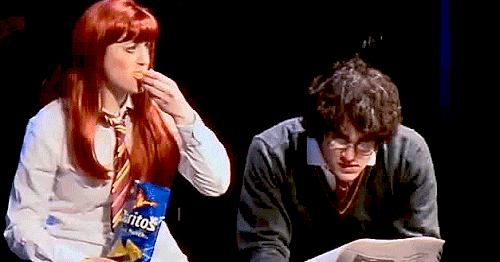
973 notes
·
View notes
Text
Favorite Character Tag
Thank you @newcaptainofsquad9 for the tag! ❤️
Rules: name ten favorite characters from ten different things (books, tv, film, etc.) And then tag ten people.
1. Steve Rogers/Captain America [Marvel]
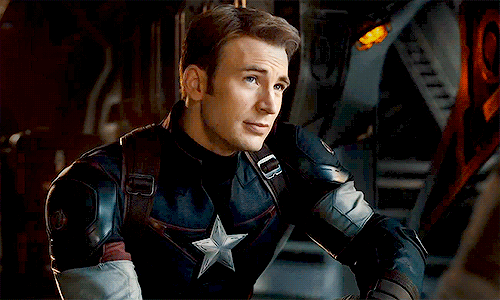
2. Crowley [Good Omens, book/tv]

3. Hermione Granger [Harry Potter, books/movies]

4. Alec Hardy [Broadchurch, tv]

5. Steve Harrington [Stranger Things, tv]
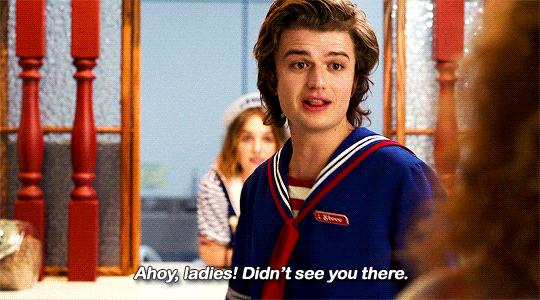
6. Even Bech Næsheim [Skam, tv]

7. Donna Noble [Doctor Who, tv]

8. Bram Greenfeld [Simon vs./Love, Simon, book/movie]

9. Richie Tozier [It, book/movie]

10. Sherlock Holmes [Sherlock, tv]
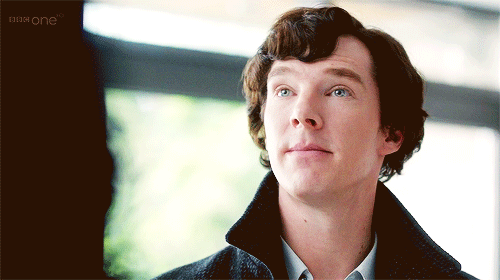
Wow, that was hard to not pick characters from the same thing haha.
Now I’m going to tag:
@elullemant @darling-in-the-fandom @omgbubblesomg @setholiver @oh--stars @moghraidhjamie @kateis-cakeis @dottieapple @gracie137blogs @deisderium
#tag gam#steve rogers#captain america#marvel#crowley#good omens#hermione granger#harry potter#alec hardy#broadchurch#steve harrington#stranger things#even bech næsheim#skam#donna noble#doctor who#bram greenfeld#simon vs#love simon#richie tozier#it#sherlock holmes#sherlock#favorite character tag
89 notes
·
View notes
Note
Okay so talk about your portrayal/interpretation of Susan vs prevalent fandom interpretation of her as a character and her relationship with her siblings if you want ofc ♥️
aefljadjfadf darling mel, the queen of dangerous questions!
ok, so i feel like the best place to start with this is what the movie did with susan (and for the most part i can understand why, but i don’t have to like it!!). essentially, they gave movie!susan some of book!lucy’s characteristics combined with some of book!edmund and a great heaping dose of hermione granger.
in the films, she’s book-smart and clever, and she seems to say a lot of things i wouldn’t expect book!susan to say. they also make her into a bit of a warrior queen, which is…so far from accurate that i can’t really talk about it without getting frustrated lol.
and, because more people have seen the films (or at least have seen them more recently than they’ve read the book) this is the susan they think about. my portrayal is….nothing like that. susan is smart but she isn’t book smart. and…she would never play whatever dictionary game they were playing in the films. she’s opinionated and stubborn, but she’s more polite than the susan we get in the films. and she certainly isn’t a warrior queen, and doesn’t want to be.
and then i think there’s this…..concept in fandom of post-narnia/london susan being almost? all-out hedonistic? and even just abandoning her family entirely, and i don’t think that’s exactly what happens. i think she maintains a certain degree of connection with all of them (with the exception, perhaps, of peter, who i think she does eventually stop talking to altogether unfortunately) even though it becomes unhealthy.and i think that, while she does go pretty deep into going out with friends/dating/etc, it’s pretty controlled until her family dies. she drinks, but she doesn’t often get drunk. she flirts, but she wouldn’t go home with anyone. when her parents and siblings die, she loses some of that control (and she hates it even as she’s doing it, but she won’t stop herself because she feels like it’s what she deserves), but it’s hitting a sort of rock bottom that eventually brings her back.
i also don’t think susan has the same amount of bitterness/anger toward her siblings and narnia that people like to give her. it does exist, in my take on her. but it’s not a constant state. it comes in moments, and when it leaves she feels guilty/conflicted over it. most of what she does is coming from grief and loss and pain that she doesn’t know how to manage. she mourns the loss of narnia long before she has to mourn for her family, but she never really gets to grieve it. and she doesn’t feel like she can lean on any of her siblings for help on that specific issue, so she bottles it all up. she always loves her siblings, even when it seems - - at times - - like she doesn’t. and there’s always guilt chasing her for stepping away from narnia and aslan, even as she’s angry about being cast out. she’s a mess of conflicted feelings, not any one thing.
mostly, though, i don’t necessarily see her as a wronged character. and i don’t see her as being entirely blameless or without fault. and that informs a lot of my choices. she lashes out at her siblings, she ignores them, she pours her entire heart and soul into things she doesn’t necessarily actually care about, because those things hurt less than trying to deal with her real pain. she knows exactly what she’s doing in distancing herself from narnia and she’s doing it on purpose, but she also desperately wants to go back. she wants to be the person she used to be, but she doesn’t know how, and every choice she makes seems to lead her further away from that.
ask me questions about susan! : always accepting
2 notes
·
View notes
Link
This is a really well done video on how the films ruined Ron and Hermione. It talks about how Steve Kloves (screenwriter for 7 out of the 8 films) changed/ruined both Ron’s character and Hermione’s character as well as both of their individual relationships with Harry. I really recommend watching it!
@headcanonsandmore
#harry potter#harry potter books#harry potter films#book vs film#fan video#Ron Weasley#Ron and Hermione#prizoner of azkaban#steve kloves#philosophers stone#chamber of secrets#goblet of fire#order of the phoenix#half blood prince#deathly hallows#princesserica84#Hermione Granger#ron weasley defense squad#defend ron weasley#defend romione
59 notes
·
View notes
Note
petal, nymph, glitter ?
petal; favourite novel and author? - this is so hard because i’ve loved so many books. okay, if i disregard the harry potter series, because that is an easy out... Fleur Ferris is a current fave/auto-buy author for me. I just recommended my niece her books and she loved them. so yay auntie points. The Hate U Give is one of the most powerful books I have ever read, so that’s definitely right up there for me. Both Simon vs the homo sapiens agenda and Leah on the Offbeat by Becky Albertalli are top books, and she’s an auto-buy author, too. I loved Amelia Westlake by Erin Gough and I cannot recommend that book enough. It’s just. God I loved it. I’ve read a selection of amazing books this year, so they all feel like favourites to me. But one series that isn’t Harry Potter that I’ve re-read a fair few times is The Raven Cycle and I realllllllllly loved that. yes, because this is a short answer, self, gosh
nymph; name 3 films that have changed your life and have shaped you into the person you are today. - Legally Blonde, Tomorrow When The War Began, Imagine Me and You.
glitter; favourite fictional character? - Hermione Granger. I can’t not pick her. She’s just so everything. She’s unapologetically ruthless, she’s smart, daring, does what it takes to get shit done. she’s inspirational.
dreamy asks
#thank you#i love you#sorry it took so long to reply - i had to go into the out and it took a lot longer than i wanted it to#pattern-pals#ask Star
2 notes
·
View notes